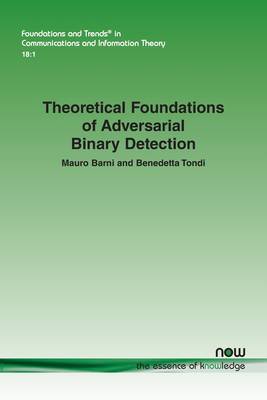
- Afhalen na 1 uur in een winkel met voorraad
- Gratis thuislevering in België vanaf € 30
- Ruim aanbod met 7 miljoen producten
- Afhalen na 1 uur in een winkel met voorraad
- Gratis thuislevering in België vanaf € 30
- Ruim aanbod met 7 miljoen producten
Zoeken
€ 108,95
+ 217 punten
Omschrijving
Binary detection is a ubiquitous problem in virtually all branches of science and technology. In many cases, binary detection must be carried out in a setting wherein the presence of an adversary aiming at inducing a wrong decision cannot be ruled out. Applications include network monitoring, spam filtering, multimedia forensics, video surveillance and biometric authentication to name but a few. In these cases, the attack is carried out at the time of testing. With the advent of widespread machine learning tools, the attacker can act during the learning phase, making it harder to detect. The main idea behind adversarial detection theory is to cast the detection problem into a game-theoretic framework. This allows the goals and the actions available to the two contenders to be rigorously defined. In this monograph, the authors address several variants of a general adversarial binary detection problem, depending on the knowledge available to the Defender and the Attacker of the statistical characterization of a system. They lead the reader through the considerations and solutions under two hypotheses, using a framework that can be adopted in many applications. This monograph, aimed at students, researchers and practitioners working in the application areas who want an accessible introduction to the theory behind Adversarial Binary Detection and the possible solutions to their particular problem.
Specificaties
Betrokkenen
- Auteur(s):
- Uitgeverij:
Inhoud
- Aantal bladzijden:
- 188
- Taal:
- Engels
- Reeks:
Eigenschappen
- Productcode (EAN):
- 9781680837643
- Verschijningsdatum:
- 20/12/2020
- Uitvoering:
- Paperback
- Formaat:
- Trade paperback (VS)
- Afmetingen:
- 156 mm x 234 mm
- Gewicht:
- 272 g

Alleen bij Standaard Boekhandel
+ 217 punten op je klantenkaart van Standaard Boekhandel
Beoordelingen
We publiceren alleen reviews die voldoen aan de voorwaarden voor reviews. Bekijk onze voorwaarden voor reviews.











